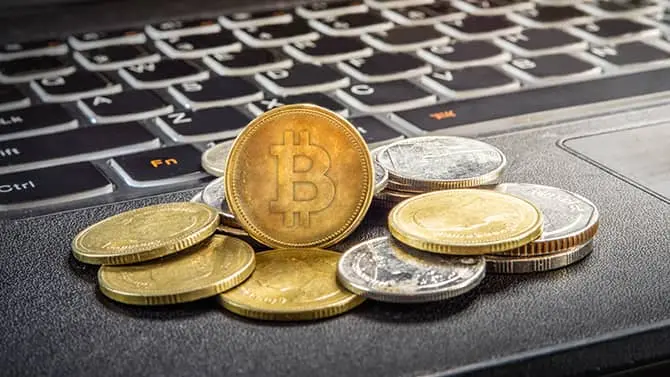
Meaning And Definition Of Cryptocurrency
Any type of money existing digitally or electronically that employs cryptography to safeguard transactions is known as cryptocurrency, commonly known as crypto-currency or crypto. Using a distributed mechanism to track transactions and create new units, cryptocurrencies lack central issuing or regulatory authority.
Define Cryptocurrencies
Digital payments like cryptocurrencies rely not on banks to validate transactions. This peer-to--peer technology lets anybody anywhere send and get money. Unlike actual money moved around and traded in the real world, bitcoin payments exist entirely as digital entries into an online database detailing particular transactions. The transactions of your bitcoin transfers are noted on a public ledger. Digital wallets help to store cryptocurrencies.
Cryptocurrency got its moniker as it verifies transactions via encryption. Advanced coding is thus involved in storing and forwarding bitcoin data between wallets and to public ledgers. Encryption seeks to give safety and security.
Founded in 2009 and still the most well-known modern cryptocurrency is Bitcoin. With speculators occasionally driving prices stratospheric, much of the interest in cryptocurrencies is in trading for profit.
How Does A Cryptocurrency Work?
Run on a distributed public ledger known as a blockchain, cryptocurrencies are records of all transactions maintained and updated by their holders.
Mining, the technique used to create units of cryptocurrencies, uses computer power to solve challenging mathematical problems producing coins. The currencies may also be purchased from brokers, then kept and used with encrypted wallets.
Should you possess cryptocurrencies, you have nothing physical. Your personal key will enable you to transfer a record or a unit of measurement from one person to another without a third party under trust.
Though Bitcoin has been around since 2009, financial terms still define cryptocurrencies and applications of blockchain technology; new uses are predicted going forward. Eventually the technology might enable trading of bonds, stocks, and other financial assets.
Illustrations of Cryptocurrencies

There are over thousand cryptocurrencies available. Among the most famous are:
Bitcoin
- Originally launched in 2009, Bitcoin is currently the most often traded cryptocurrency available. Satoshi Nakamoto, generally thought to be a pseudonym for someone or group whose exact identity is yet unknown, created the currency.
Ether
- Originally developed in 2015, Ethereum is a blockchain system with Ether (ETH), its own money. After Bitcoin, this cryptocurrency is the most often used one.
Lite coin:
- Though it has progressed quicker to provide new innovations including speedier payments and procedures to enable more transactions, this money is most like bitcoin.
Ripple:
- Started in 2012, ripple is a distributed ledger system. Not just with cryptocurrencies but also with many other types of transactions may be tracked using ripple. The firm behind it has dealt with several banks and financial organizations.
Collectively referred to as "altcoins," non-bitcoin cryptocurrencies set themselves apart from the original.
Buying Cryptocurrencies
You might be asking about secure bitcoin purchase practices. Usually there are three phases involved. These constitute:
First Step: Choose A Platform
Choosing a platform to apply comes first. Usually, you have either a regular broker or a specific cryptocurrency exchange to pick from:
-
classic brokers. These internet brokers provide means to purchase and sell cryptocurrencies as well as other financial assets including equities, bonds, and ETFs. These sites usually have less crypto functionality but less trading charges.
-
Exchanges for cryptocurrencies From numerous bitcoin exchanges available, each providing unique cryptocurrencies, wallet storage, interest-bearing account alternatives, and more, you have choices. Many exchanges levy asset-based fees.
-
When weighing many platforms, take into account which cryptocurrencies are available, their costs, security measures, storage and withdrawal choices, and any instructional materials.
Second: Financing Your Account

-
Funding your account comes next once you have decided on your platform so you can start trading. Though this varies by platform, most crypto exchanges let users buy crypto using fiat (i.e., government-issued) currencies such the US Dollar, the British Pound, or the Euro using their debit or credit card.
-
Credit card purchases of cryptocurrencies are seen as dangerous, and several exchanges refuse to accept them. Furthermore some credit card issuers forbid crypto transactions as well. This is so because cryptocurrencies are rather erratic and it is not wise to risk debt—or maybe large credit card transaction fees—for some assets.
-
ACH and wire transfers will also be accepted on some platforms. Every platform has different approved payment methods and deposit or withdrawal times. Similarly, the clearing times for deposits change depending on the payment type.
-
One should give fees some thought as well. These comprise trading fees as well as possible deposit and withdrawal transaction costs. Payment method and platform will affect fees; so, it is advisable to investigate these points first.
Third Step: Ordering Something
Ordering using your broker's or exchange's site or mobile app is easy. Should you intend to purchase cryptocurrencies, you can do so by choosing "buy," the order type, entering the desired purchase amount, and verifying the order. The same procedure governs "sell" orders.
One other approach to invest in cryptocurrencies is These let users purchase, sell, or keep cryptocurrency via PayPal, Cash App, Venmo payment systems. Furthermore among the investment vehicles are the following:
-
Regular brokerage accounts let you purchase shares in Bitcoin trusts. These vehicles expose individual investors to cryptocurrencies via the stock market.
-
From which to pick are Bitcoin ETFs and Bitcoin mutual funds.
-
Blockchain stocks or ETFs allow you to indirectly invest in cryptocurrencies by means of blockchain businesses specialized in the technology behind crypto transactions. Alternatively, you may purchase ETFs or equities of blockchain-using firms.
-
Your risk tolerance and investing objectives will determine the best choice for you.
How should one keep cryptocurrencies?
You ought to keep your bought cryptocurrencies securely to guard them from theft or hackers once you bought them. Usually, cryptocurrencies are kept in crypto wallets—physical objects or online tools meant to safely save the private keys for your coins. Some exchanges provide wallet services, which will let you to conveniently save straight via the platform. Still, not all brokers or exchanges will immediately offer wallet services for you. You may also read this: Sandwich Attacks in Crypto and How to Protect Yourself
One can pick from several wallet providers. We speak about "hot wallet" and "cold wallet":
-
"Hot wallets" are crypto storage systems whereby internet software protects the secret keys to your funds.
-
Unlike hot wallets, cold wallets—also known as hardware wallets—rely on offline technological equipment to safely retain your private keys.
-
Usually, hot wallets do not collect fees; cold wallets sometimes do.
Is money safe?
Usually, blockchain technology is used in construction of cryptocurrencies. Blockchain explains how time stamped events are recorded into "blocks". Though the technological procedure is somewhat complicated, hackers will find it difficult to access the digital record of bitcoin transactions produced.
Transactions also need a two-factor authentication mechanism. To begin a transaction, for example, you may be requested to enter a login and password. Then you may have to input an authentication code texted to your own mobile phone.
Securities are in place; it does not imply cryptocurrencies are un-hackable. Several high-dollar tips have cost start-ups using cryptocurrencies significantly. Two of the largest bitcoin breaches of 2018 include hackers hitting Coincheck at the tune of $534 million and BitGrail for $195 million.
Unlike government-backed money, supply and demand define virtual currencies' value totally. For investors, this can cause huge fluctuations with either large losses or significant returns. Furthermore, compared to conventional financial assets like equities, bonds, and mutual funds, cryptocurrencies investments have significantly less governmental protection.


